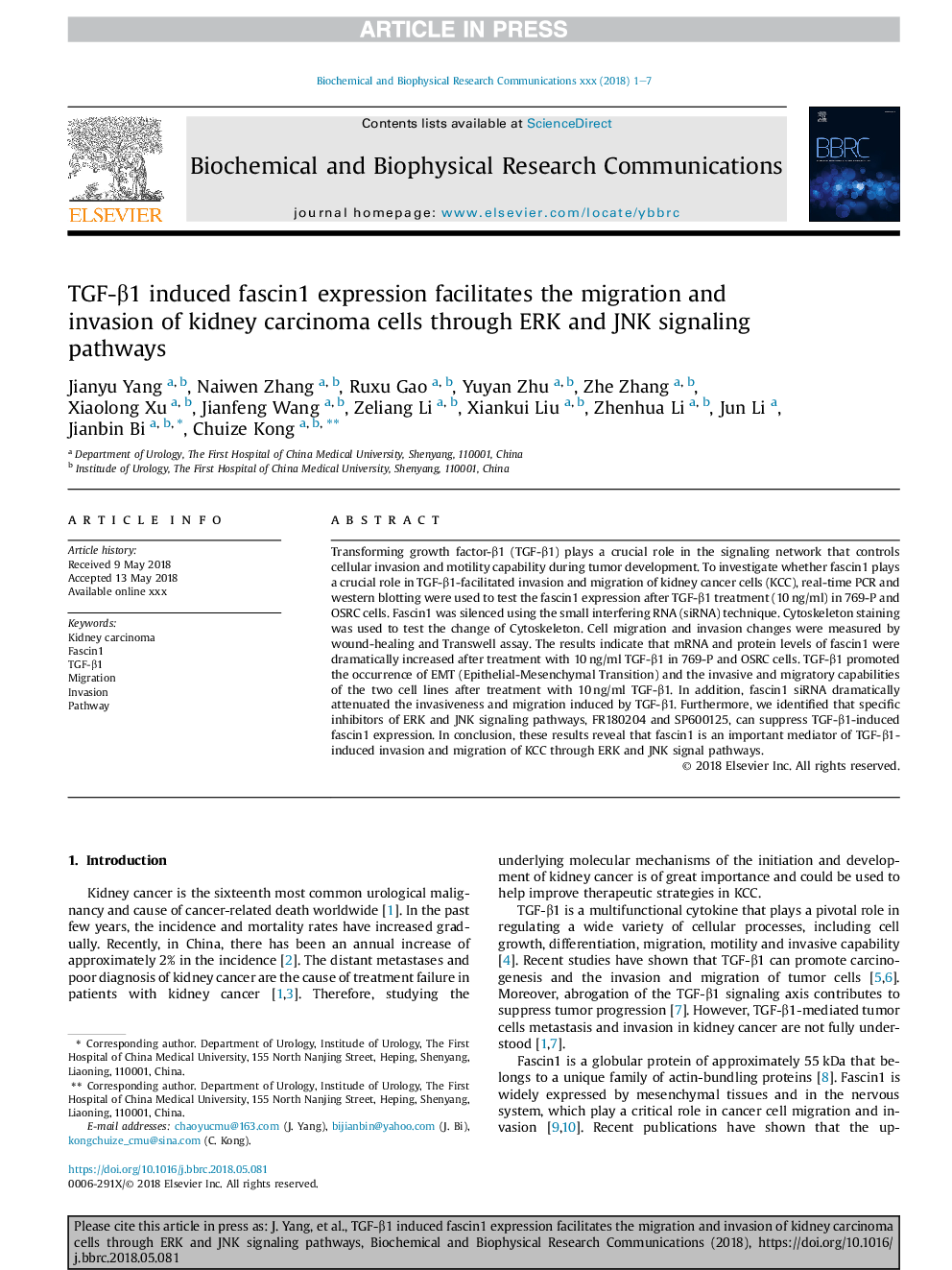| Article ID | Journal | Published Year | Pages | File Type |
|---|---|---|---|---|
| 8292487 | Biochemical and Biophysical Research Communications | 2018 | 7 Pages |
Abstract
Transforming growth factor-β1 (TGF-β1) plays a crucial role in the signaling network that controls cellular invasion and motility capability during tumor development. To investigate whether fascin1 plays a crucial role in TGF-β1-facilitated invasion and migration of kidney cancer cells (KCC), real-time PCR and western blotting were used to test the fascin1 expression after TGF-β1 treatment (10â¯ng/ml) in 769-P and OSRC cells. Fascin1 was silenced using the small interfering RNA (siRNA) technique. Cytoskeleton staining was used to test the change of Cytoskeleton. Cell migration and invasion changes were measured by wound-healing and Transwell assay. The results indicate that mRNA and protein levels of fascin1 were dramatically increased after treatment with 10â¯ng/ml TGF-β1 in 769-P and OSRC cells. TGF-β1 promoted the occurrence of EMT (Epithelial-Mesenchymal Transition) and the invasive and migratory capabilities of the two cell lines after treatment with 10â¯ng/ml TGF-β1. In addition, fascin1 siRNA dramatically attenuated the invasiveness and migration induced by TGF-β1. Furthermore, we identified that specific inhibitors of ERK and JNK signaling pathways, FR180204 and SP600125, can suppress TGF-β1-induced fascin1 expression. In conclusion, these results reveal that fascin1 is an important mediator of TGF-β1-induced invasion and migration of KCC through ERK and JNK signal pathways.
Related Topics
Life Sciences
Biochemistry, Genetics and Molecular Biology
Biochemistry
Authors
Jianyu Yang, Naiwen Zhang, Ruxu Gao, Yuyan Zhu, Zhe Zhang, Xiaolong Xu, Jianfeng Wang, Zeliang Li, Xiankui Liu, Zhenhua Li, Jun Li, Jianbin Bi, Chuize Kong,
